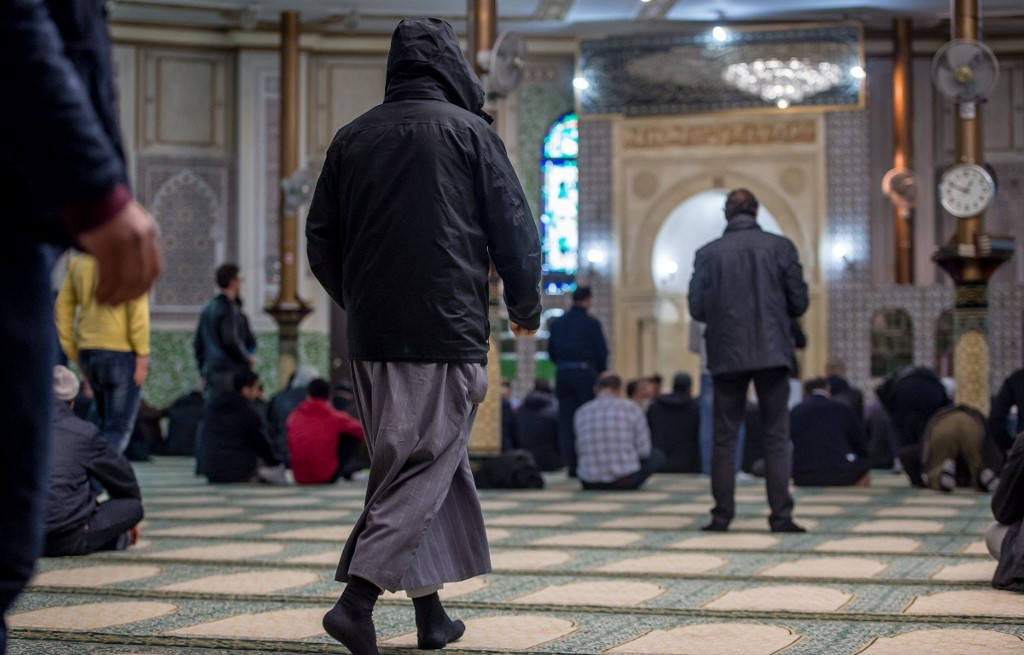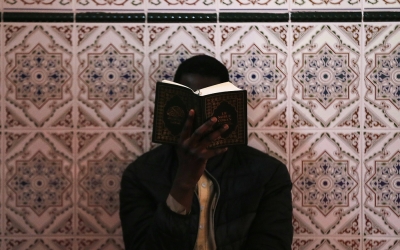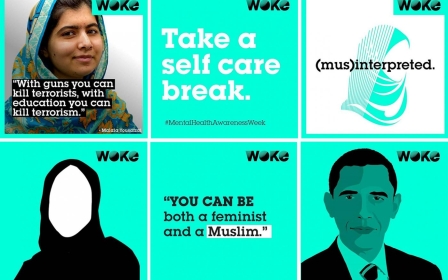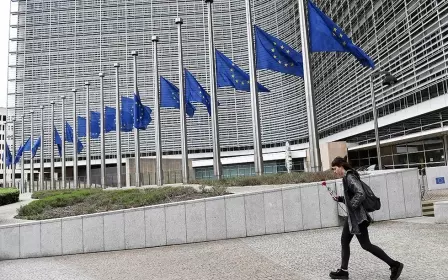UK counter-extremism propaganda unit extending reach around the globe

The British government has begun exporting the propaganda elements of its controversial Prevent counter-radicalisation to countries across the globe.
Documents seen by Middle East Eye show that methods of covertly communicating government messages have been taken up by at least 11 countries, including Iraq, Tunisia, Kosovo and Kenya.
A number of European countries, including France, Belgium, Spain and Estonia have also started running propaganda operations based upon the Prevent model, according to the documents.
MEE has reported on a number of examples of the sort of operations that the British government has developed in recent years, including media platforms such as This Is Woke, which purports to be a social media programme for young people, and Stoosh, a Facebook and Instagram campaign aimed at young women from Muslim, Black and Asian backgrounds.
Other examples include feature films, local radio programmes and exhibitions aimed at university students.
Many of the campaigns were devised by a London communications company under contract to a unit within the Office for Security and Counter-Terrorism (OSCT), which is part of the British government’s Home Office.
That unit, the Research, Information and Communications Unit (RICU), has been producing propaganda aimed covertly at Britain’s Muslim population for several years, under the counter-radicalisation programme known as Prevent.
What is the Prevent Strategy?
+ Show - HidePrevent is a programme within the British government's counter-terrorism strategy that aims to “safeguard and support those vulnerable to radicalisation, to stop them from becoming terrorists or supporting terrorism”.
It was publicly launched in the aftermath of the 2005 London bombings and was initially targeted squarely at Muslim communities, prompting continuing complaints of discrimination and concerns that the programme was being used to collect intelligence.
In 2011, Prevent's remit was expanded to cover all forms of extremism, defined by the government as “vocal or active opposition to fundamental British values, including democracy, the rule of law, individual liberty and mutual respect and tolerance of different faiths and beliefs.”
In 2015, the government introduced the Prevent Duty which requires public sector workers including doctors, teachers and even nursery staff to have “due regard to the need to prevent people being drawn into terrorism”.
A key element of Prevent is Channel, a programme that offers mentoring and support to people assessed to be at risk of becoming terrorists. Prevent referrals of some young children have proved contentious. 114 children under the age of 15 received Channel support in 2017/18.
Criticism of the Prevent Duty includes that it has had a “chilling effect” on free speech in classrooms and universities, and that it has turned public sector workers into informers who are expected to monitor pupils and patients for “signs of radicalisation”. Some critics have said that it may even be counter-productive.
Advocates argue that it is a form of safeguarding that has been effective in identifying and helping troubled individuals. They point to a growing number of far-right referrals as evidence that it is not discriminatory against Muslims.
In January 2019 the government bowed to pressure and announced that it would commission an independent review of Prevent. This was supposed to be completed by August 2020. After being forced to drop its first appointed reviewer, Lord Carlile, over his past advocacy for Prevent, it conceded that the review would be delayed.
In January 2021 it named William Shawcross as reviewer. Shawcross's appointment was also contentious and prompted many organisations to boycott the review. Further delays followed. Shawcross's review, calling for a renewed focus within Prevent on "the Islamist threat", was finally published in February 2023 - and immediately denounced by critics.
The British government has set up an international wing of RICU – known within government circles as RICU-I – to encourage other countries’ governments to adopt the programme.
The work of RICU-I is separate to the propaganda initiatives that the UK government is known to have been running in Syria in an attempt to shape perceptions of the civil war. The Syrian initiatives have been operated by the UK’s Ministry of Defence and foreign office.
'Full spectrum effort'
Documents seen by MEE show that RICU-I has developed a £6.5m programme to work across the globe “to deliver a full spectrum counter violent extremism influencing effort”.
They add that “through pilot activity in Europe, Tunisia, Pakistan and Kenya, RICU International has now developed and refined its approach to providing CVE [countering violent extremism] capacity building support to partners”.
Much of the propaganda material was initially produced from a “production hub” in Brussels, set up by RICU-I and staff from the London communications company, which has recently changed its name from Breakthrough Media to Zinc Network.
“The Hub, manned by communications experts and representatives from European Union Institutions, member states and industry partners will support civil society organisations … to develop and deliver CVE interventions," the documents said.
European Union officials have previously acknowledged RICU's role in running a Europe-wide communications network established to counter online radicalisation.
The documents make clear the individuals within the civil society organisations that are delivering the propaganda messaging are expected to sign non-disclosure agreements, in order to conceal governments’ involvement in the work.
Last year MEE revealed details of British government contract requirements which indicated that RICU-I had drawn up plans to start operating in France.
MEE understands that RICU-I has developed a football coaching programme in France through which counter-extremism messages are being covertly disseminated.
Rap and graffiti
In Tunisia, RICU-I was found to be using rap and graffiti during campaigns intended to covertly change the attitudes and behaviour of young people.
The documents acknowledge that one problem with the propaganda initiatives is the risk that “host governments use the knowledge and capabilities provided... to deliver government propaganda” rather than counter-extremism messages.
According to the documents, “the concept for the production hub is based on a proven model developed and delivered by RICU in the UK.
“Since 2013 RICU has been providing in-kind communications support through a powerful partnership between Government, industry and civil society.
“Investment in production capacity of this kind has driven real growth in the pace, scale and sustainability of CVE communications in the UK.”
However, Prevent is a deeply controversial programme in the UK. Supporters defend it as an essential counter-terrorism tool, while critics regard it as intrusive and discriminatory.
A United Nations special rapporteur warned earlier this year that counter-extremism programme such as Prevent contribute to the violation of the rights of religious and ethnic minorities.
The UK government has promised to conduct a review of the programme. However that process has been delayed after it faced a legal challenge over its initial appointment of a member of the House of Lords who has publicly advocated for Prevent.
A new reviewer is expected to be appointed next month, with the deadline for the review to be completed extended until August 2021.
Middle East Eye delivers independent and unrivalled coverage and analysis of the Middle East, North Africa and beyond. To learn more about republishing this content and the associated fees, please fill out this form. More about MEE can be found here.







